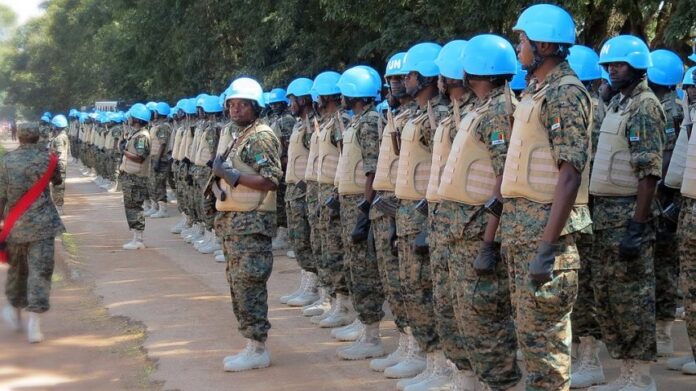Author: Monalisa Adhikari
Affiliation: The University of Edinburgh
Organization/Publisher: International Peacekeeping
Date/Place: February 26, 2020/ U.K.
Type of Literature: Journal Article
Number of Pages: 27
Link:https://www.tandfonline.com/doi/pdf/10.1080/13533312.2020.1733422?needAccess=true
Keywords: Peacekeeping, Civil-Military Relations, Nepal
Brief:
United Nations (UN) peacekeeping missions are for the purpose of maintaining the presence of military contingents from member States in any specific conflict zone, in order to maintain peace. Currently, there are fourteen peacekeeping missions led by the UN, comprising more than a hundred thousand troops. According to this study, the participation of developing countries in these missions is leading to civil-military imbalance in their respective political environments. According to the author, most of the suppliers of military contingents to the UN have themselves anarchy and chaos in their societies, e.g. Nepal, Indonesia, Pakistan, Bangladesh and Ethiopia. Moreover, the UN peacekeeping doesn’t ensure or require the civilian supremacy of military relations in participatory States; the militaries of developing countries thus strengthen their imprints on domestic political dynamics. According to Cunliffe’s findings, the “greater the role given to peacekeeping by a State, [the] greater the role given to the military in national self-image and political life of State.” Furthermore, the role of the UN as a peacekeeping body is controversial because of its unobservant behavior towards the growing imbalance in civil-military relations in many troop contributing States. The author concludes by emphasizing that the peacekeeping participation as one of the factors for civil-military imbalance in developing States must be addressed by policymakers.
By: Muhammad Taimoor Bin Tanveer, CIGA Research Associate




